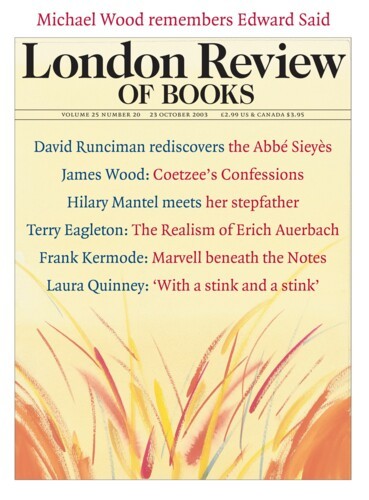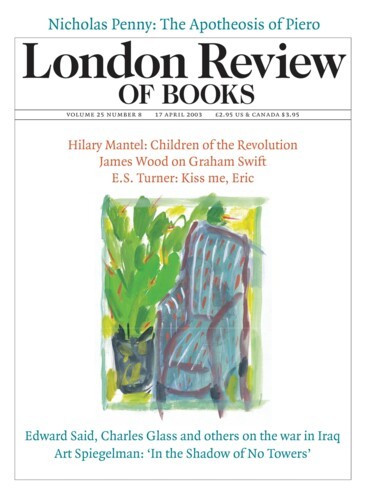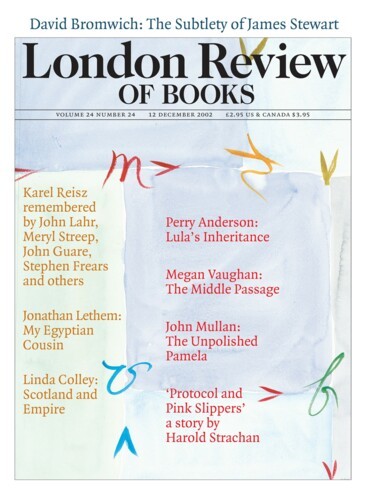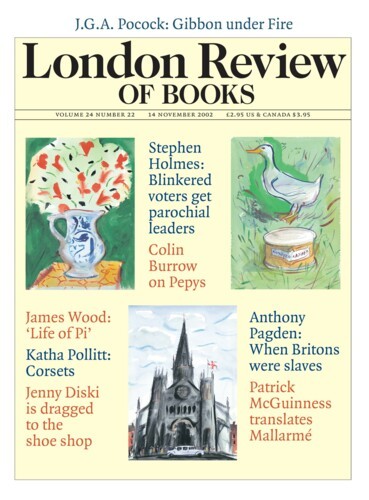A Frog’s Life: Coetzee’s Confessions
James Wood, 23 October 2003
“There may be many readers who, on hearing of J.M. Coetzee’s Nobel prize, immediately thought about the cost of clarity. There is so much, after all, missing from Coetzee’s distinguished books. His prose is precise, but blanched; in place of comedy there is only bitter irony . . . in place of society, with its domestic and familial affiliations, there is political society; and underfoot is often the tricky camber of allegory, insisting on pulling one’s step in certain directions.”





